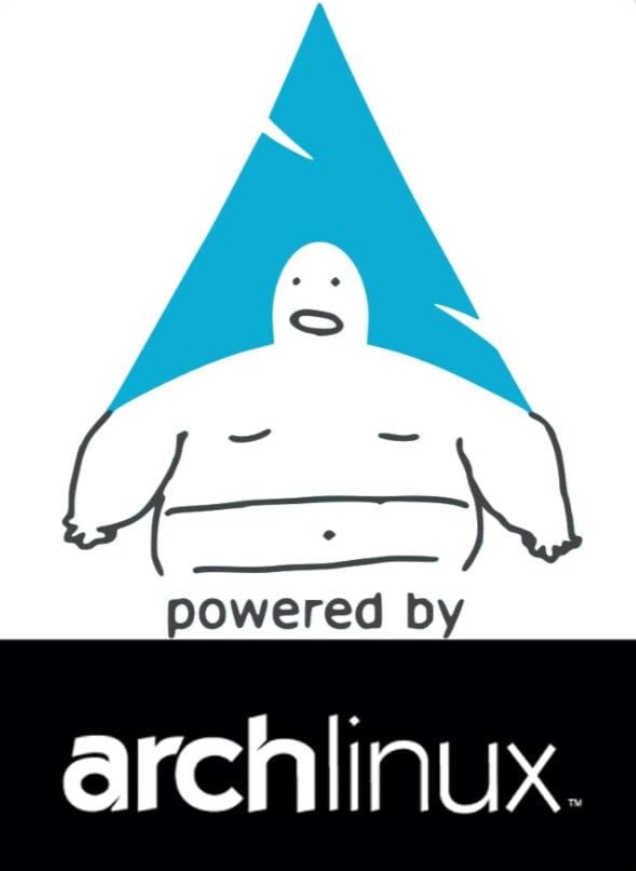- cross-posted to:
- linuxmemes@lemmy.world
- cross-posted to:
- linuxmemes@lemmy.world
I am a little biased because I’ve been using Debian professionally for many years now but we don’t deserve Debian. It is fantastically stable and reliable and makes an excellent platform for running your services off of. If you are at all interested in offering some time and energy to the open source community, consider adopting a Debian package!
I’m thinking about a Linux laptop with FOSS software for my business actually, Lemmy’s relentless horde of pro-Linux propaganda has won me over
(OK I’ve always liked FOSS I’ve just never taken the jump)
ONE OF US! ONE OF US!
but seriously, modern FOSS distros (yes, debian is modern, damnit!) are amazingly good. you have an exceptionally high probablility of switching and staying switched.
I’m looking forward to it!
Side note: anyone got recommendations for business software? I’ve started browsing the FOSS community here for ideas but I’m not sure what QuickBooks alternatives exist
I’m an accountant.
The best accounting software will be the one your accountant uses.
When clients are on the same platform that I use internally everything just matches up and it’s beautiful and elegant and amazing.
When clients are using something else it just doesn’t fit our workflows and it’s just more of a fuck around, which of course the client gets charged for.
A quick Google shows Quickbooks to be cloud-based accounting software. For FOSS accounting, GnuCash exists so you could try that (it can also run on Windows and macOS). However, it’s unlikely to have feature parity so if you like the added convenience that Quickbooks offers, see if you can use Quickbooks in a browser. Being cloud-based, they would probably build a browser version before building a Linux desktop app. If they don’t and you need to run a Windows desktop app on Linux, you can probably do this using Bottles (which uses Wine and Proton under the hood, the tech that enables the Steam Deck).
I mean yeah, but specifically I’d like something built for Linux that’s good for just basic spreadsheet stuff. I’m an electrician so I mostly just need to track jobs and accounts.
Take a look at Apache OFBiz, Akounting, Frappe Books, and LedgerSMB.
Most of (what we call) Linux OSes are formally GNU/Linux. GnuCash is as close as it gets to “made for Linux”. If you don’t want an accounting-specific application, but just generic spreadsheets, check out LibreOffice.
I highly recommend GnuCash for accounting though: a fellow board member cleaned up an org’s accounting by putting it all in GnuCash, where it was a bunch of error-prone Excel sheets before. That really made it easier to keep track and to do it right.
GnuCash
Huh, they’ve even got active development on an Android app. https://github.com/GnuCash-Pocket/gnucash-android?tab=readme-ov-file
ONE OF US! ONE OF US!

I had to step away from it because packages are just too old.
They are. You can get .debs through other sources quite often, though.
This is what I specifically hate about building Docker images based on Debian. Half your
Dockerfileends up mucking about with third-party repositories, verifying keys, etc.
Have you considered using
testinginstead ofstableor Siduction?I should be more clear: specifically I was rebuilding a Docker image based on Debian and needed Node.js for one build step, then Ruby for another as well as the final image.
In the
Dockerfilethere were a ton of weird commands for simply installing Node.js and Ruby whereas on Alpine Linux I could simply install the needed versions fromapk. I understand it’s preferable to build these from scratch but in the case of Node.js I was looking to simply compile a bunch of assets then throw away the layer.I could’ve spent a bunch of time figuring it out for Debian but I wanted a smaller image in the end anyway too.
That’s how I feel about arch, it’s not “stable” but the few issues I’ve had they typically have it fixed with an update within hours.
I do have to clarify when I switched to arch from windows my entire computer was brand new and practically no other distro booted or if it installed it dumped me to a black screen.
After running my server on archlinux with the stable kernel for 7 years I did install Debian on my new server. Zfs just required an older lts kernel than I could get on arch without a ton of hassle. I didn’t need it on my Mac mini with an external hard drive plugged in. From my experience it’s not very different to maintain compared to arch but it’s nice having built in automation instead of writing my own.
Man it’s weird using a system of what I can guess is a bunch of bash scripts on Debian to set things up compared to just using the tools built into and written for systemd.
it’s not “stable”
“stable” in this case means that it doesn’t change often. Debian stable is called that because no major version changes are performed during the entire cycle of a release.
It doesn’t mean “stable” as in “never crashes”, although Debian is good at that too.
Arch is definitely not “stable” using that definition!
Yeah, I know the definition. I knew someone would quote it verbatim, someone always does. I quoted it because it’s not the word I would use. I like scheduled or versioned releases better but someone always disagrees with me. As far as I’ve seen it’s a major/minor version release cycle anyway.
I just want a Debian-based distro with KDE that’s not poisoned by Canonical’s nonsense
Have you tried Debian?
I’m currently on debian. I wrote this comment as a response to the Debian slander in the meme.
Just do a quick simple
sudo apt-get install task-kde-desktop
Man Nvidia users are going to be stoked when the get explicit sync in they’re desktop environments in two years. 😂 They’re have been so many small improvements in the Nvidia drivers up until that point I hope they actually update Nvidia drivers on Debian. I understand some of those improvements are not going to work because of the kernel version and the desktop versions.
You can choose KDE as desktop environment during Debian installation, or replace whatever DE you installed at any time.
I think you’re looking for Debian. If you want newer packages, run testing instead of stable.
MX ?
KDE Neon?
It’s Ubuntu based
But afaIk without ‘Canonical’s nonsense’, e.g. snap Firefox.
updating packages in kde neon is like playing russian roulette, it’s worse than pop os in my experience
During usual updates? Or during the major release jump of KDE Plasma from 5.x to 6.x?
I’m using mxlinux “ahs” version, it comes with kde at their “ahs” repos for supporting latest hardware and graphics cards. You may also check for the non-ahs, there might be a meta-package for kde plasma and that’s it…
Why do you need it to be Debian-based?
Same, that’s why I’m using Q4OS
I still remember this nice ‘feature’ of XScreenSaver.
However, as of 2016 Iceweasel is Firefox ESR again.
The packages in Debian are really old. It’s awful.
I was looking at my xzutils package the other month. “So outdated,” I thought, envying the cool hip trendy Arch users.
Yeah, I had to bail. FreeBSD was awesome for stable yet bleeding-edge packages, a perfect blend of downloading binaries and compiling from source (when needed) with everything in sync.
These days I’m using Alpine Linux almost exclusively, but I miss the convenience of FreeBSD and wish it wasn’t being left behind by the Kool Kidz™.
Tell me you’re an opinionated novice without telling me you’re an opinionated novice.
(edit:specificity)

You can’t stop me

Busta!
SOFTWARE WAS NOT SUPPOSED TO BE STABLE
Someone with a case of brain rot.
Me, because I cannot understand how people can miss the facetiousness of this meme template with such confidence
🪦
When even the skull is more alive
Ah, I see you’ve met the product owner.
YEARS OF BACKPORTS yet NO REAL WORLD USE FOUND for staying more than ONE VERSION behind
I have a really old computer that still gets the job done, and just getting up to Bullseye broke it a bit.
I know, I know, it’s just a meme.
LMDE (Linux Mint Debian Edition) is a wonderful self-hosting platform.
Today I learned there’s a Debian edition of mint.
Mentoning Iceweasel in 2024?! Where did you find this meme?! Debian stable?!
debian nightly release
We don’t talk about what happens in the night.
It makes a great headless server
Getthefuckouttamyfacewiththisridiculousbullshit.
Debian gives you a choice though. If you want stability, install the stable release. If you want newer packages, install the testing release. Just be sure to get security updates from unstable (sid) if you do that.
“stable” in this context means that stuff doesn’t change often. It doesn’t mean “stable” as in reliable / never crashes, although Debian is good at that too.
It is possible though to get newer versions using flathub or somethibg, right? (I know very little about linux, but I’m thinking of switching from win10 to debian next year.)
For normal desktop users, yeah Debian Stable + Flatpaks is a winning combo for picking the software that you want to be cutting-edge and leaving the rest to rock-solid stability. Normally Linux distros keep a full ecosystem of packages that interop and depend on each other, but solutions like Flatpak have their own little microcosm of dependencies that can be used independently of the host distro. There are also Debian Backports for when you want native Debian packages that are more cutting-edge but still compiled to work with your older base system. Backports are not available for most packages but sometimes the important ones are available, like the Linux kernel itself. You can also try to compile your own backports, but you’ll be responsible for updating it.
- No better time than the present
- Yes there are ways of acquiring the latest packages even on Debian stable. Usually I end up compiling that stuff myself
- If you’re at all unsure if you want to deal with Debian not pushing the latest and greatest updates you do have options such as running Debian Testing or MX Linux (which itself is based on Debian Testing)
- No better time than the present
Look, I’m already trying (and kinda succedding) to avoid doing some hard tasks I have to do, don’t push me further into the rabbit hole.😆
Ugh, now I’m considering doing it in 2 weeks, what have you donee
Sure thing. Just remember its better to do things you want to do rather than waiting for things to be perfect. Lord knows its something I need reminded of sometimes
Sweet. Welcome to the cult of Debian.
We (Debian users and contributors) are inevitable. Our quiet satisfied computing cannot be stopped, only delayed.
We should consider getting some fancy robes and a few club houses, though. The only thing that can make Debian better is cookies and tea.



















